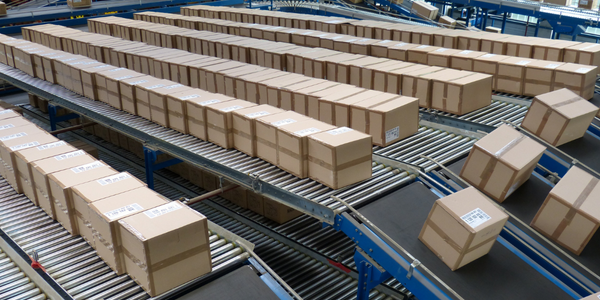Customer Company Size
Large Corporate
Region
- Asia
- Pacific
Country
- Singapore
- Australia
- China
- Japan
- Malaysia
Product
- QlikView
- Navision ERP system
Tech Stack
- ODBC
- Microsoft Excel
- Microsoft Access
Implementation Scale
- Enterprise-wide Deployment
Impact Metrics
- Productivity Improvements
- Cost Savings
Technology Category
- Analytics & Modeling - Real Time Analytics
Applicable Functions
- Sales & Marketing
- Business Operation
Use Cases
- Supply Chain Visibility
- Predictive Quality Analytics
Services
- System Integration
- Training
About The Customer
tesa tape is a leading manufacturer and distributor of pressure-sensitive adhesive tapes. The company has pioneered the development of adhesive tape technologies for over a century. tesa offers 800 kinds of self-adhesive tapes and services customers in over 50 countries around the globe, holding numerous product patents. In the Asia-Pacific region, tesa has local sales teams in 13 countries for fast and reliable on-site service. The company has experienced technical specialists for each market segment to support their customers and find the best solution for their needs. tesa also has storage, production, and converting centers in Australia, China, India, Malaysia, and Singapore for fast and reliable deliveries. The company also has certified strategic partners for special distribution and converting needs in all major countries.
The Challenge
tesa tape, a leading manufacturer and distributor of pressure-sensitive adhesive tapes, was facing challenges in improving data accessibility to its Asia-Pacific subsidiaries and affiliates. The company wanted to enhance the usability of business data by integrating flexible, high-powered, multifunctional analysis tools. They also aimed to reduce the time and manpower required to develop practical, visual reports. The company had implemented a Navision ERP system, which provided new opportunities for automating information. However, the visual capabilities of the ERP system were limited, and the company was looking for a solution that could provide better visual reporting.
The Solution
tesa tape deployed QlikView to 70 employees with plans to roll out QlikView to all its affiliates in the region – 13 countries in total. With QlikView touching 3 functional areas, tesa now automates full sales and financial analysis across the region. The company selected QlikView to complement its new Navison ERP system for better visual reporting. Now the company saves countless hours in reporting and analysis and experiences operational benefits across all of its affiliates. The company’s first application using QlikView was a sales analysis application for affiliates reporting into the regional head office. Now, individual affiliates in Australia, China, Japan, Malaysia, and Singapore use QlikView to pull online information for monthly consolidation. The application pulls directly from the ODBC in tesa’s ERP system, eliminating the manual reporting manipulation people had to do in the past.
Operational Impact

Case Study missing?
Start adding your own!
Register with your work email and create a new case study profile for your business.
Related Case Studies.

Case Study
Remote Temperature Monitoring of Perishable Goods Saves Money
RMONI was facing temperature monitoring challenges in a cold chain business. A cold chain must be established and maintained to ensure goods have been properly refrigerated during every step of the process, making temperature monitoring a critical business function. Manual registration practice can be very costly, labor intensive and prone to mistakes.

Case Study
IoT Data Analytics Case Study - Packaging Films Manufacturer
The company manufactures packaging films on made to order or configure to order basis. Every order has a different set of requirements from the product characteristics perspective and hence requires machine’s settings to be adjusted accordingly. If the film quality does not meet the required standards, the degraded quality impacts customer delivery causes customer dissatisfaction and results in lower margins. The biggest challenge was to identify the real root cause and devise a remedy for that.

Case Study
Retail Uses RFID to Enable Cold Chain Monitoring
Like most grocery retailers, Hy-Vee is faced with the challenge of providing the highest quality products to its shoppers. Shoppers want the longest possible shelf life from perishable products and expect a consistent product experience each time they shop. Controlling the quality of products sold leads to shopper loyalty, which is of paramount importance to the success of Hy-Vee. Before products arrive in stores, Hy-Vee's distribution centers (DCs) handle items including dairy products, fresh meats, seafood, deli items, produce and frozen goods, all of which have different temperature needs and sensitivities. During transit from suppliers to DCs, Hy-Vee has limited visibility and temperature management abilities due to large amount of supplier managed transportation. For instance, during a week-long transit, a supplier's carrier equipment may malfunction, causing an item to thaw and then refreeze once repairs are made. Hy-Vee sought help from TempTRIP, an RFID solution provider that focuses on shipping, storage, receiving, and temperature control. TempTRIP's EPC RFID tags use Impinj chips to monitor and report temperature readings throughout the shipping and receiving process. The tags can also be re-configured and re-used, a unique feature within the current market of temperature monitoring devices.

Case Study
Covisint Improves Mitsubishi's Collaboration With Its Supply Chain
Mitsubishi sought to improve supplier relationships on a global basis and to offer an easy-to-use solution to interact with them. In August 2004, Mitsubishi selected Covisint’s platform to help improve sharing of information and collaborative business processes with its global suppliers. Covisint enabled Mitsubishi to provide its suppliers with immediate access to information and applications to obtain more collaborative working relationships





